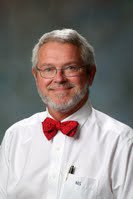Just Who Do You Think You Are, Anyway?
We know more about deep space than we know about ourselves. I don’t know where I first heard this concept, but the speaker went on to prove the point. “Who among us can pass by our reflection in the glass without looking at it and wondering: who is that person looking back at me?”
At least from the time of Socrates we have been urged to know ourselves. Polonius gave similar advice to his son Laertes in “Hamlet” when he delivered his famous “To thine own self be true” exhortation. These kinds of thoughts, cultured by Soren Kierkegaard in the 19th century, eventually gave rise to the popularity of a philosophy known as existentialism that reached its apotheosis in the middle of the 20th century. This is heady stuff! But I’m not convinced that we need to be urged to explore these questions. I’m of the mind that it might just come naturally.
It comes as no surprise that my children absolutely love to hear stories about their ancestors. These stories help them to understand who they are. When my wife describes the arduous passage of her great, great grandmother, the kids are in rapt attention. The Carter family (those would be the “VahGINya Carters”) crossing the Cumberland Gap in a covered wagon and moving thence on the westward fork of the Wilderness Road toward middle Tennessee is a beloved part of our family lore. On my side of the family we had a coffee merchant who sailed a “Baltimore Clipper” throughout the Caribbean, a Cavalry officer who fought Pancho Villa, and we’re members of the Scots Clan Gordon. The latest delight was to discover that President Obama is a distant cousin!
Now it seems to me that if this sort of self-awareness through family history is natural, then how easy would it be for a classroom teacher of any grade level to capitalize on it? It could be the family tree poster in Kindergarten, the “find the meaning of your name” project in third grade, the geography lesson in seventh, or family genetics as a high school science inquiry? I can easily imagine an application in foreign language, mathematics, or creative writing. This concept has appeal to each and every student. If my name (Henry = “home ruler”) doesn’t make intrigue me, then what would! And if I hunt for my name or my origins or my family’s cardiac history or my connection to the White House, then I’m doing really good research.
The appeal is clearly to the ego, but there’s nothing wrong with using that appeal to achieve a lesson’s goals. And who knows? Perhaps one day exercises such as these will help us to realize that independence is good, but interdependence is our calling.
“Henry G. Selby, headmaster of All Saints’ Episcopal School in Morristown, is a popular speaker at seminars, conferences, civic events, and professional development meetings. He would be delighted to speak at your next meeting. Please call the school for more information.”










